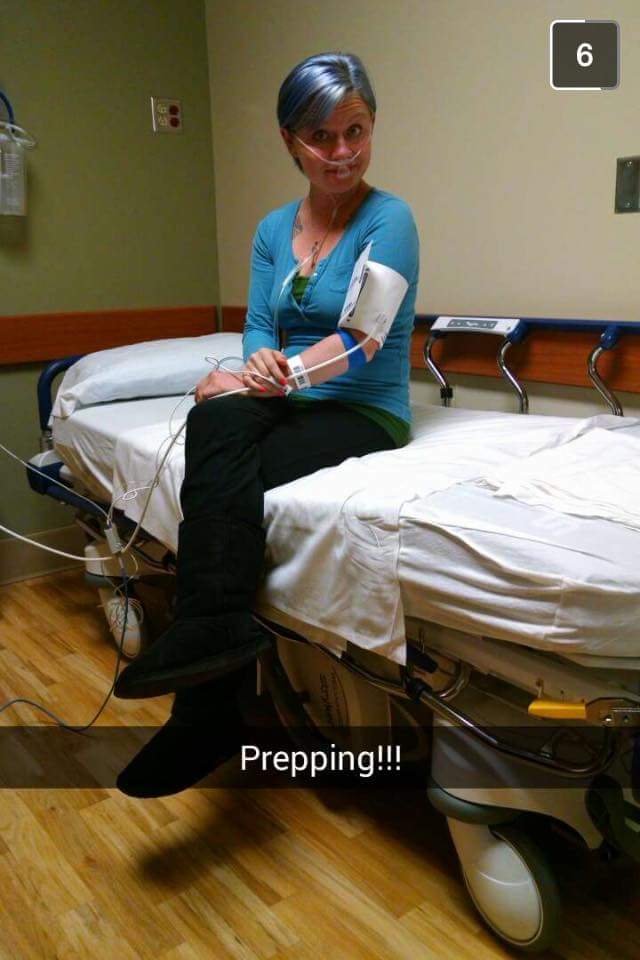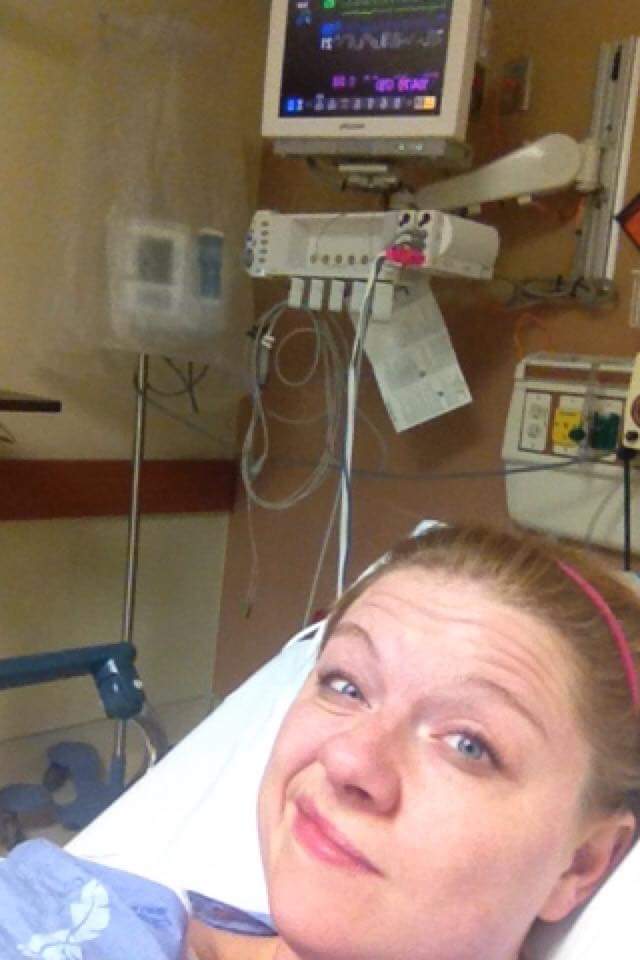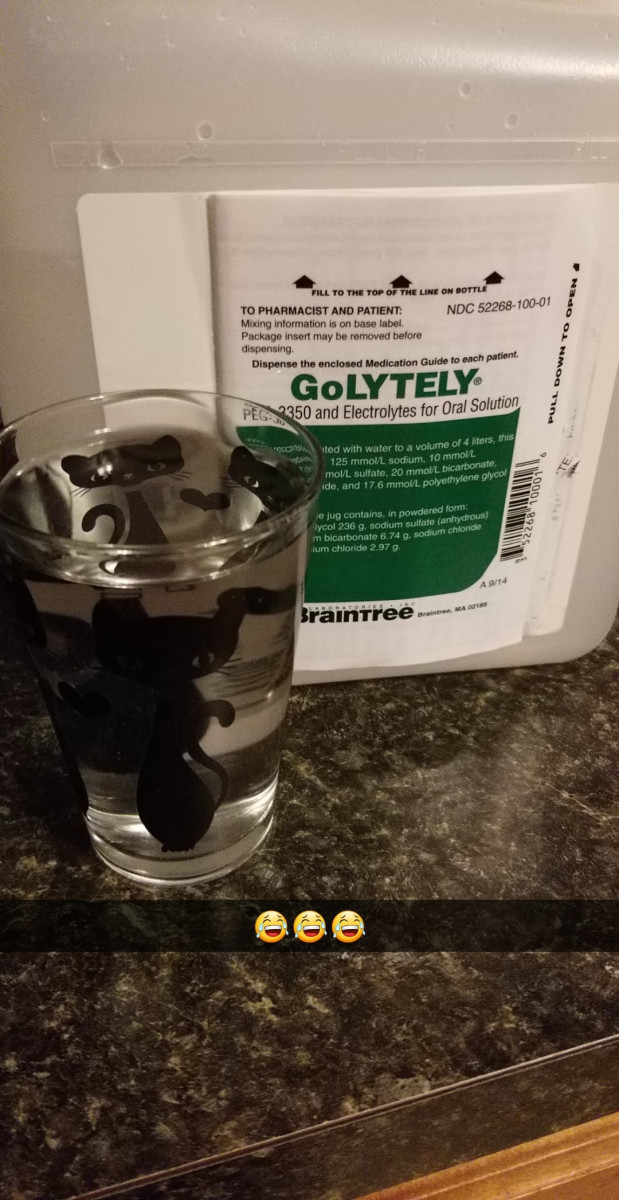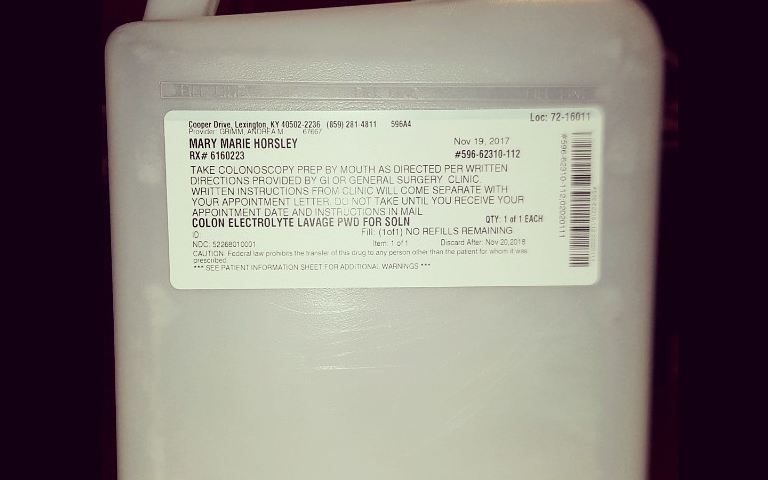
As mentioned in a previous article, “Receiving a Diagnosis of Crohn’s Disease,” after IBD patients meet with their physician and gastroenterologist, or GI doctor, they likely will go through a procedure or two, most likely a scope, or colonoscopy.
Sometimes patients will undergo these before diagnosis and continue to receive them long after, and knowing what to expect can help first-timers or people having to prepare for colonoscopies in the future.

What is a colonoscopy?
Colonoscopies help not only to find and diagnose bowel diseases and internal problems for IBD patients, but they also help to check for disease or medication maintenance or progression. They help to check for blockages or bowel wall narrowing and to find current inflammation, flares, or possible remission.
I have gone through four colonoscopies and two endoscopies, as sometimes more than one is needed. I actually am typing this as I prepare for my fifth colonoscopy later this afternoon, so bowel prep is fresh on my mind having drunk “the mixture” until the early hours this morning.
Fasting usually is required for these scopes, with a bowel prep to drink the night before. The prep is used to help clean your insides for better viewing, and consists of an all-liquid cleanse of about 64 ounces of a thick solution. In my experience, drinking with a straw helps to avoid tasting it, and you also can add Crystal Light packets (no red colors!) to help mask the taste.
During the fasting, most patients still can have Jell-O, Gatorade, and chicken soup (just the broth), and an all-liquid diet until around midnight, depending on when you start your prep and when your colonoscopy is scheduled. No red dyes are allowed because they can tint your intestines, which could be hard to distinguish from inflammation or internal bleeding.
The prep is done until all of the mixture is gone or until you are “going clear.” You will spend some significant time in your bathroom, so I suggest a full phone battery, candles, and baby wipes.

The procedure
A colonoscopy entails a tube that is inserted via the anus (up from the rear) to look around the rectum and the large bowel or intestine. It is done under general anesthesia, or conscious sedation, in my experience with the U.S. Veterans Health Administration, to help avoid any discomfort or patient embarrassment.
Patients usually lie on their side in a hospital gown while doctors view the images on a television-like screen, recording any abnormalities and taking biopsies as needed.
During the scope, air is blown into your body through the tubes, allowing the camera movement for viewing. By pumping in air, the intestines are opened and more area can be seen.
This air being pumped in can cause discomfort and slight pain from bloating. The air also will cause you to be gassy; there is no way around it, so be warned and try to find some humor in it. Because your stomach has so much length to it, these scopes cannot reach all portions, leaving areas of potential inflammation undiscovered. If the problem areas are not within view, other procedures are discussed.

Aftermath
After the scoping is complete, patients usually “wake” in a recovery room as the sedation wears off, and then are allowed to go home. Having anesthesia, I usually never remember the procedure or details. You’ll need a driver before you can leave the facility, so I suggest having that person take the doctor’s notes or plan doctor visits after recovery.
I actually woke up during my very first colonoscopy, and it was terrible. I woke with the tube still inside my body, feeling the doctor moving around. During this specific scope, my anesthesia wore thin and I woke up in pain and distress. The video screen in the room was showing my bowels and I remember waking and crying, I think due to being shocked and unaware of what was happening, blame the anesthesia. I could feel the air and doctor moving around inside my stomach and it was very uncomfortable.
But, don’t let me scare you — this is not too common. I just learned the hard way that I wake early with sedation, so now I warn them beforehand to put me out good.

I hope your prep isn’t too awful and that the colonoscopies go as well as they can.
For me, it could be worse.


I was diagnosed back in the Mid-80’s. My first test was with a rigid sigmoid scope. Wide awake, painful and nauseous. Once I was correctly diagnosed, they went to a flexible scope. First few times, I was sedated mildly, but awake for most of the procedure. Not fun, because you could kind of feel it moving around. Then, they went to “twilight” sedation, where you woke up near the end (so to speak), but you really didn’t care. Now, with general anesthesia, they put you out and you wake up in a very noisy recovery room.
Exactly right! No fun being awake.
In the UK before a colonoscopy you are given a mild sedative to relax you but not an anaesthetic which means I was fully aware of what was going on during the 3 colonoscopies I have had. For me the worst part is the prep before hand although the first colonoscopy I had was quite painful, but apparently this is rare.
I think they offer just a sedative but because I was so young and anxious they put me out. The only time I woke up during was traumatizing and painful since I could feel the air and tube still. No fun!